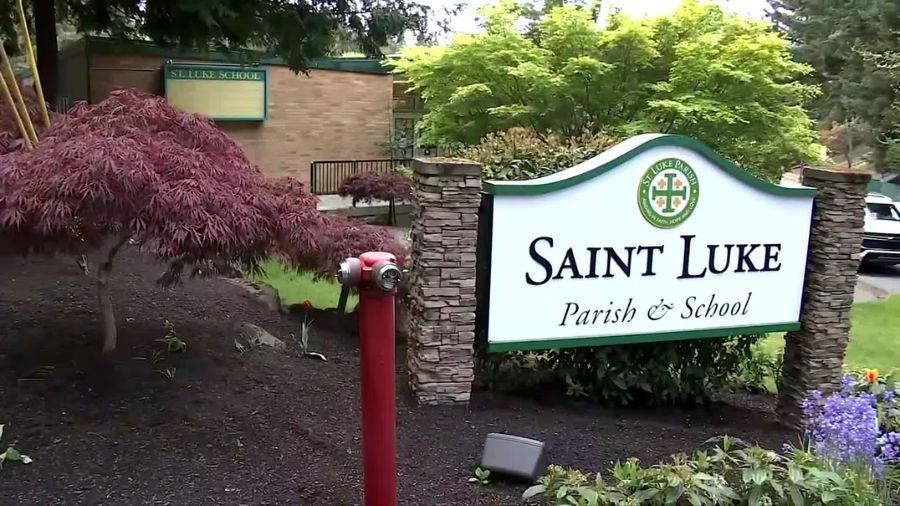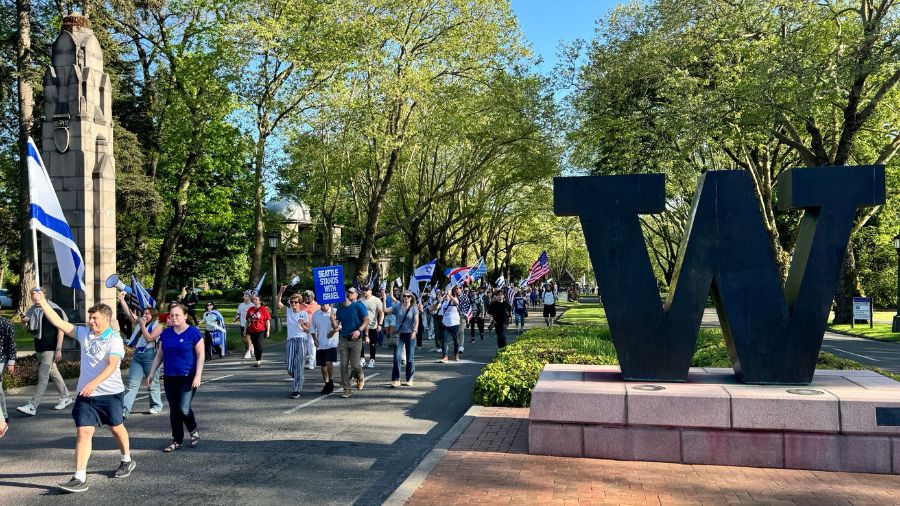‘We’re so far behind on this’: Seattle council looks to catch up on affordable housing data
Mar 21, 2022, 6:15 AM | Updated: Mar 22, 2022, 11:14 am

Yesler Terrace, Seattle's first public, racially integrated housing complex. (Wikimedia commons via CM Mosqueda)
(Wikimedia commons via CM Mosqueda)
Seattle City Councilmember Alex Pedersen recounted a conversation he had with a former “director of a city government department that relies on housing data” on Friday. They discussed the University District’s potential for affordable housing loss as it goes through a development wave, and as Pedersen recalled, the director was not aware of the vulnerable units of which Pedersen spoke, including roughly 100 affordable units on University Avenue.
In 2017, a city-contracted housing data collection firm, Dupre and Scott Apartment Advisors, shut their doors, and with their closure went clarity on where the city’s below-market rental properties are located, properties which could be potentially preserved with council-backed “anti-displacement strategies.”
Since that time, as Pedersen disclosed in a council session last week, the city has “been relying, mainly, on census tract data that is too high level and too infrequent.”
That lack of complete information on where Seattle’s affordable housing lies comes as the council looks to craft those anti-displacement strategies in the coming months and years, in the form of an update on the city’s Comprehensive Plan, which will help dictate Seattle’s housing growth management strategy for close to a decade to come. That plan is due in 2024.
A recent racial equity analysis commissioned under the plan recommends that the city embrace upzoning of single-family zoned areas and preservation of BIPOC communities through such policies as “land value capture tools” and added investments in affordable housing.
Red-lining, race, and wealth continue to form borders between Seattle voters
As an offered solution to the data problem, Pedersen has sponsored a bill which will “require landlords to submit rent and rental housing information to a research university and certify to the City under the Rental Registration and Inspection Ordinance (RRIO) that they had done so,” as the bill’s summary reads.
“We need block by block data on existing contract rents that are in place so we know what tenants are paying now and which buildings are naturally occurring affordable housing,” Pedersen said Friday.
“We’re so far behind on this. There are other policy documents that the city has approved, stating that we want to prevent displacement. One of the ways of doing that is having better data, having this granular data, and nobody has that right now. So we’d have to do something now to get that level of specificity. Block by block, where the … affordable housing is, so we go in eyes wide open on how we’re gonna change land use or anything else around where those properties are located.”
Councilmember Sara Nelson stressed the city’s shortcomings as they relate to housing data collection, and, along those lines, she believes a more immediate point-in-time count might be appropriate ahead of the Comprehensive Plan’s deadline.
“I understand that your timeline is based around upcoming zoning decisions that are going to be made,” Nelson said Friday.
“My whole point is that, is it possible, maybe we should talk about this offline, to get a point in time study,” she continued, “because it seems as though the trend data that you’re looking for, over time, by this ongoing reporting you might not. You need this information in 2024.”
Pedersen clarified what the city has access to as it looks to craft future housing policy.
“One of the problems is what’s readily available is census track information from the American Community Survey, but it doesn’t give us the block to block information.”
“Sometimes, studies are based also on what would they be charging for a vacant unit today if you wanted to rent it today, but we’re interested in what they’re paying right now. There are tenants right now paying potentially below market, unregulated rents. … We just don’t know where that is.”
Central staff outlined specific reporting requirements of the bill.
“Specifically, property owners will be asked to submit a list of all the rental housing units on a property, whether the unit was vacant or it was occupied, the net rentable square footage is for that unit, the number of bedrooms and bathrooms, information that [reflects] the net monthly residential rent and if utilities are included in rent, what that amount is and the length of a rental agreement,” a council staff member explained.
“This information would all be used by a research university to provide information to the city to help inform housing policy displacement indicators to help the city make its updates to the comprehensive plan.”
The bill in question is scheduled for a potential April 1 vote.












